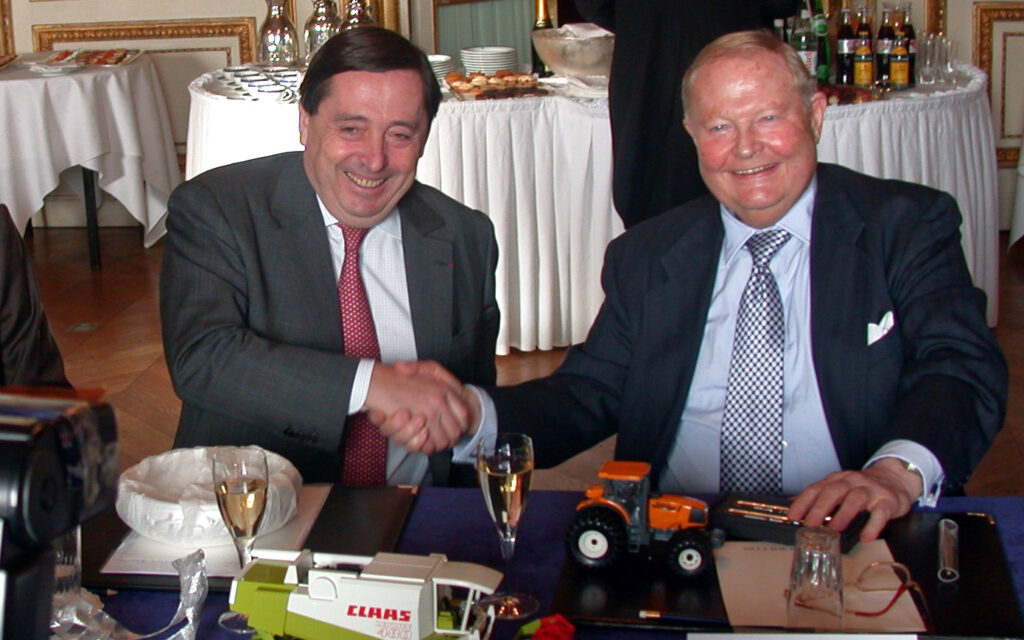It has been 20 years now since Helmut Claas signed an agreement to acquire a majority stake in Renault Agriculture, the tractor division of the Renault Group based at Le Mans in northern France.
Since that date, the German company has transformed the Le Mans-built products into a range of modern and highly competent tractors that match machines from any other major manufacturer.
Time for change
In the latter part of the last century, Renault had found itself at somewhat of a crossroads. In 1988 it had been the number one brand in France, holding 16% of the market with a modernised factory that employed 750 people.

The 1990s saw it reach out to other companies in joint ventures with John Deere, Massey Ferguson and even JCB, but come 2003, the Renault group announced a restructuring of its business and the sale of 51% of the Le Mans factory to Claas, with a final transfer of assets occurring in 2008.
At the time, the latest models were the Renault Ares range, introduced at SIMA in 1997, these started to to appear in Claas’ distinctive seed green livery a few months after the take over, and by the end of the year the Renault colours had been phased out altogether.
Flagship models first
The first completely new Claas tractors to be launched were the Axion models in 2006 in which we saw the first appearance of the CEBIS terminal and a semi powershift transmission.
The Axions were Class’ larger tractors, second only to the company’s Xerion sytems tractors in performance.

However, this changed in 2013 when an Axion 950 recorded a record-breaking pulling power of 242kw, although the engine only made 419hp, which was still short of the top Xerion ratings at the time.
Another notable year was 2017 when the Axion 900 Terra Trac and CEMOS for Tractors were introduced, each winning a silver medal at Agritechnica that year.
It was also the year that the company started to invest €40 million in completely revamping the factory, enabling it to produce up to 13,000 units a year.
Large numbers from Le mans
By 2019, the 150,000th Claas tractor had rolled out of Le Mans, a figure which is expected to reach 200,000 by the end of 2023.
The facility now has a staff of 1,000 even though it is blessed with state-of-the-art assembly lines, which tend to reduce labour requirements.

Le Mans is now a far cry from the glory days of Renault. The family-owned firm took over the tractor division of a factory that had been nationalised in a political move by Charles de Gaulle in 1944, and has since built it into a world-beating production facility.
The Renault group itself still produces chassis components in the 103-year old factory for its cars and light commercials, so not all the ties with the past are lost.
